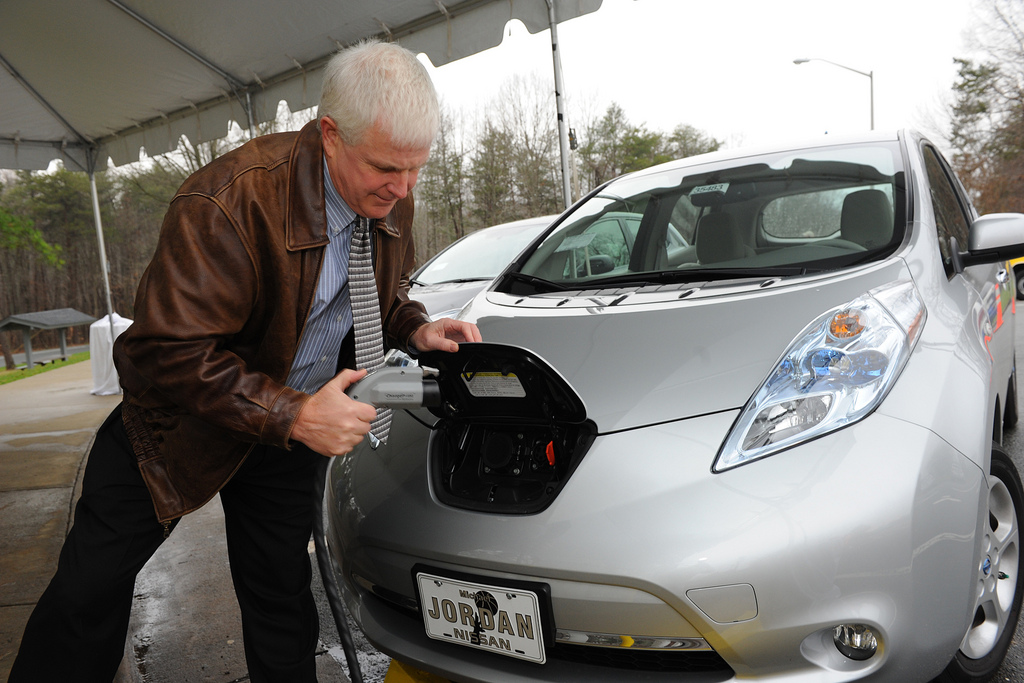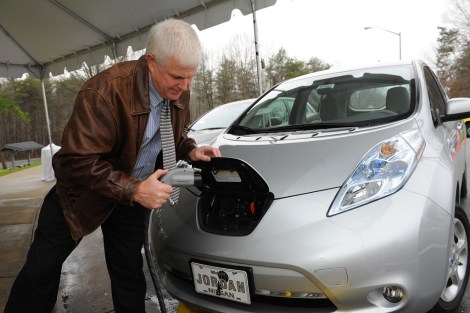It’s not hard to buy gas. No matter where you’re driving, in every single state in the United States, there will be, at reasonable intervals, stations with uniform pumps that will always fit into your tank and will always work more or less the same way and will always take your credit card, or have a person around to take your cash. And all this somehow happens without the caches of flammable material buried just beneath your feet igniting and blowing the whole thing to bits.
But this gas infrastructure didn’t spring out of the ground fully formed — the government helped make this system and helps keep it running smoothly. And, if we’re going to use less combustible, carbon-spewing fossil fuel, governments are going to have to help create an alternative system, too.
They’re starting to step up. Eight states that represent, according to the New York Times, “a quarter of the national car market” just announced they’re going to work together on creating a better system for drivers of electric vehicles. They are, in descending order of population size, California, New York, Massachusetts, Maryland, Oregon, Connecticut, Rhode Island, and Vermont, and they say their goal is to help get 3.3 million new EVs sold by 2025. With a combined population of 79 million people, that means one EV for every 24 people.
How are they going to do it? By creating a system that will give EV owners something only gas-guzzling car drivers have now: certainty about where and when and how they’ll be able to fuel up. These states are promising to put in:
- More charging stations
- Building codes that require chargers at workplaces and “multifamily residences”
- Reduced tolls
- Better parking
- Cheaper electricity prices
The first two items ensure access. The last three encourage use. This isn’t really all that complicated; it’s just going to take time. But programs like this can speed progress up. And one day, no driver will need to think any harder about charging her car than she does now about stopping at a gas station.



